Fatigue
How to submit an article:
- Registered users can submit any published journal article that has a unique DOI (Digital Object Identifier) name or link to Research Hub.
- For example, you can paste the full DOI link:
https://doi.org/10.1109/5.771073or just the DOI name:10.1109/5.771073into the field above and click submit. - The person who is first to submit a valid article to Research Hub will forever be credited for it, and every article submission earns you +6 Research Points.
Related Topics
Published research studies are articles that present the findings of original research that has undergone a peer-review process and has been made publicly available in scholarly journals, books or other media.
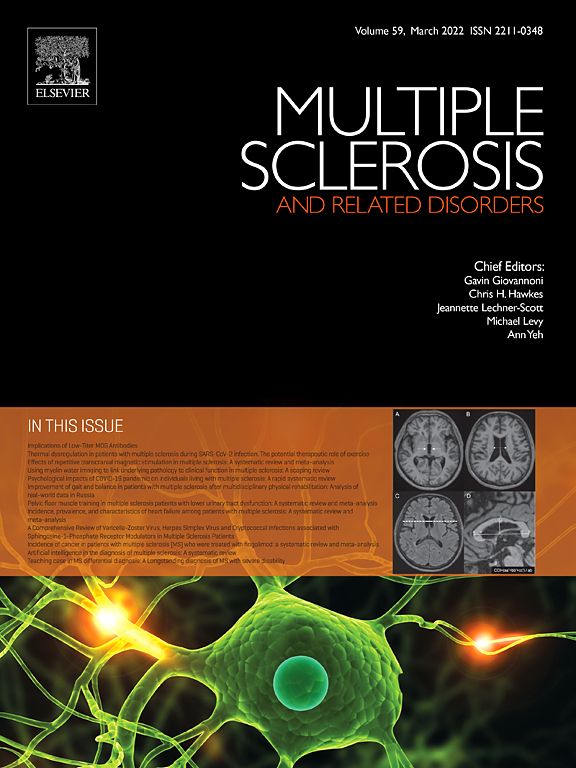
Effects of Acupuncture on Fatigue, Disability, Psychological Problems, and Sleep Quality in People with Relapsing-Remitting Multiple Sclerosis: A Randomized Controlled Trial
2023 Dec Multiple Sclerosis and Related Disorders Khodaie F, Moghadasi AN, Zhao B, Saeedi R
Twelve weeks of acupuncture treatment was effective in reducing fatigue, sleep latency, use of sleeping medication, somatization, obsessive-compulsive, depression, and paranoid disorders in people with RRMS.
Randomised Controlled Trial Multiple Sclerosis Acupuncture Sleep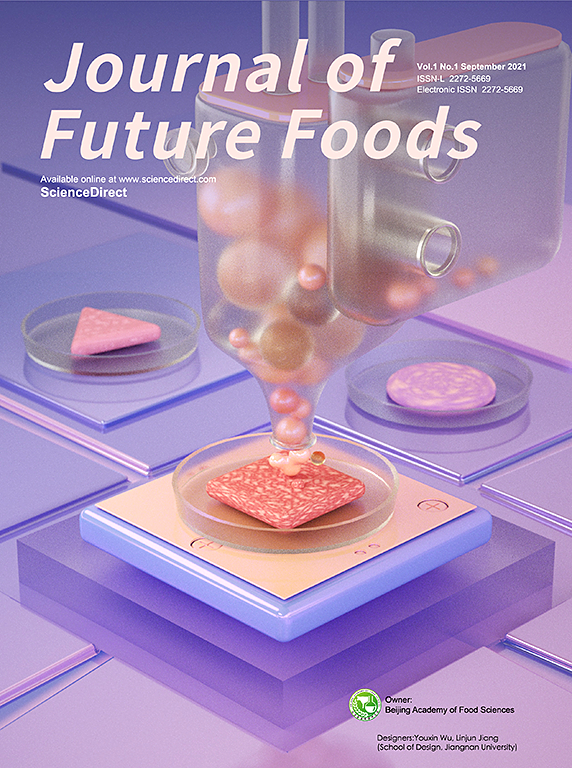
A review on the application, phytochemistry and pharmacology of Polygonatum odoratum, an edible medicinal plant
2023 Sep Journal of Future Foods Bi J, Fang H, Zhang J, Lu L, Gu X, Zheng Y
Through a comprehensive analysis of the chemical composition and pharmacological effects, it is presumed that the main active ingredients are homoisoflavanones, polysaccharides, saponins, and lectins, and the pharmacological effects are antitumour, anticancer, antioxidant, delayed aging activity, slowing senescence, relieving fatigue and immune regulation.
Review Article Yu Zhu
Effectiveness of Fish Roe, Snow Fungus, and Yeast Supplementation for Cognitive Function: A Randomized, Double-Blind, Placebo-Controlled Clinical Trial
2023 Sep 29 Nutrients Lin YK, Lin YH, Chiang CF, Jingling L
Randomised Controlled Trial Anxiety Fatigue Yeast Fish Roe Snow Fungus Cognitive FunctionA beverage formula containing fish roe, snow fungus, and yeast enhances cognitive function by improving memory, response times, and emotional recognition, while reducing anxiety and fatigue.
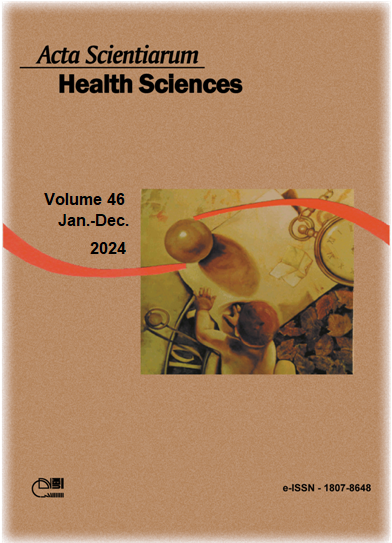
Acupuncture effects on pain and health status in women with fibromyalgia: a randomized clinical trial
2023 Aug 08 Acta Scientiarum. Health Sciences Baelz GU, Silva AMV, Duarte BSL, Steffen EL, Silva JEP, Signori LU
Acupuncture, compared to sham acupuncture, significantly reduced pain by 16% (p<0.001) and improved health status by 21% (p<0.001) in women with fibromyalgia. The improvement in health status is attributed to increased ability to work and go out, and reduced pain, fatigue, tiredness, and depression.
Randomised Controlled Trial Fibromyalgia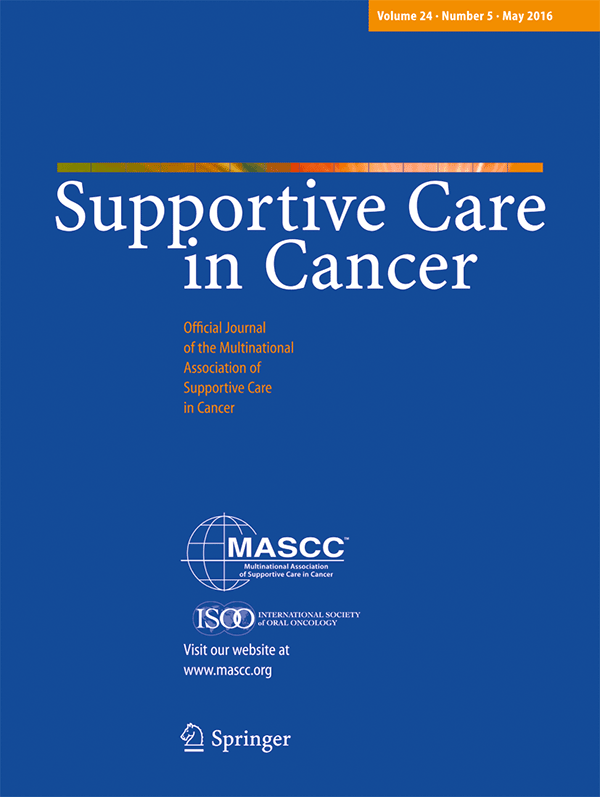
Acupuncture improves immunity and fatigue after chemotherapy in breast cancer patients by inhibiting the Leptin/AMPK signaling pathway
2023 Aug 05 Supportive Care in Cancer Li J, Fu R, Guo X, Pan Z, Xie J
The Leptin/AMPK signaling pathway is identified as a key molecular pathway affecting fatigue after chemotherapy in breast cancer patients; acupuncture treatment effectively improves post-chemotherapy fatigue, immune status, and reduces mitochondrial DNA mutations.
Experimental Study Clinical StudyResearch insights are moderated by the Research Hub team and offer an at-a-glance overview of interesting research findings.

2023 Nutrients
A beverage formula containing fish roe, snow fungus, and yeast enhances cognitive function by improving memory, response times, and emotional recognition, while reducing anxiety and fatigue.
Randomised Controlled Trial Anxiety Cognitive Function Fish Roe Snow Fungus Yeast
Effectiveness of Fish Roe, Snow Fungus, and Yeast Supplementation for Cognitive Function: A Randomized, Double-Blind, Placebo-Controlled Clinical Trial
Lin YK, Lin YH, Chiang CF, Jingling L
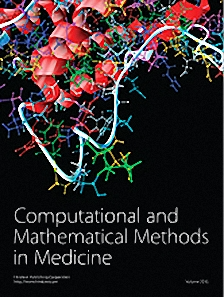
2022 Computational and Mathematical Methods in Medicine
Compound Chrysanthemum extract may alleviate visual fatigue through its interaction with several components, targets, and pathways.
Network Pharmacology Chrysanthemum Eye Fatigue
Network Pharmacology, Molecular Docking, and Molecular Dynamic-Based Investigation on the Mechanism of Compound Chrysanthemum in the Treatment of Asthenopia
Qiu J, Zheng B, Zhou H, Ye C, Shi M, Shi S, et al.

2022 Nutrients
Eating two gold kiwifruit daily can lead to significant improvements in mood and energy, thereby boosting psychological well-being in adults.
Review Article Mental Health Mood
The Role of Kiwifruit in Supporting Psychological Well-Being: A Rapid Review of the Literature
Billows M, Kakoschke N, Zajac IT

2022 Phytomedicine
Acupuncture shows positive effects on cancer-related issues; research calls for further exploration of acupuncture's efficacy and safety, especially for conditions like depression, offering further potential support for cancer survivors
Systematic Review Acupuncture Cancer-related conditions
Acupuncture for cancer-related conditions: An overview of systematic reviews
Zhang X, Hou W, Pu F, Wang X, Wang Y, Yang M, et al.

2022 Multiple Sclerosis and Related Disorders
Acupuncture, when used as an integrative therapy in conjunction with traditional treatments, significantly improves the quality of life in patients with Multiple Sclerosis.
Review Article Multiple Sclerosis
Acupuncture for multiple sclerosis: A literature review
Khodaie F, Abbasi N, Kazemi Motlagh AH, Zhao B, Naser Moghadasi A
Review Articles
Review articles summarise and critically evaluate the current state of research on a specific topic or field by synthesising multiple primary research studies.

A review on the application, phytochemistry and pharmacology of Polygonatum odoratum, an edible medicinal plant
2023 Sep Journal of Future Foods Bi J, Fang H, Zhang J, Lu L, Gu X, Zheng Y
Through a comprehensive analysis of the chemical composition and pharmacological effects, it is presumed that the main active ingredients are homoisoflavanones, polysaccharides, saponins, and lectins, and the pharmacological effects are antitumour, anticancer, antioxidant, delayed aging activity, slowing senescence, relieving fatigue and immune regulation.
Review Article Yu Zhu
Acupuncture for cancer-related conditions: An overview of systematic reviews
2022 Nov Phytomedicine Zhang X, Hou W, Pu F, Wang X, Wang Y, Yang M, et al.
Systematic Review Cancer-related conditions AcupunctureAcupuncture shows positive effects on cancer-related issues; research calls for further exploration of acupuncture's efficacy and safety, especially for conditions like depression, offering further potential support for cancer survivors

The Role of Kiwifruit in Supporting Psychological Well-Being: A Rapid Review of the Literature
2022 Nov 03 Nutrients Billows M, Kakoschke N, Zajac IT
Review Article Mental Health Fatigue MoodEating two gold kiwifruit daily can lead to significant improvements in mood and energy, thereby boosting psychological well-being in adults.
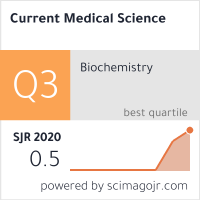
The Latest Research Advances of Danggui Buxue Tang as an Effective Prescription for Various Diseases: A Comprehensive Review
2022 Oct Current Medical Science Ma C, Jiang Y, Wang Y, Xu R
Based on TCM theory, DBT is mainly used to treat fatigue, thirst, weakness, women’s menstrual periods and postpartum fever, anemia, and other blood deficiency syndromes. Modern pharmacological experiments have demonstrated that DBT possesses a wide range of biological activities, thus showing remarkable medicinal value. The use of DBT can provide more treatment options for diseases with clinical manifestations such as hemocytopenia, DN, nerve damage, cardiovascular and cerebrovascular diseases, fibrosis, and cancer.
Review Article Huang Qi Dang Gui Bu Xue Tang
Acupuncture for multiple sclerosis: A literature review
2022 Apr 26 Multiple Sclerosis and Related Disorders Khodaie F, Abbasi N, Kazemi Motlagh AH, Zhao B, Naser Moghadasi A
Review Article Multiple SclerosisAcupuncture, when used as an integrative therapy in conjunction with traditional treatments, significantly improves the quality of life in patients with Multiple Sclerosis.
Clinical Trials
Clinical trials are research studies that involve people and are conducted to evaluate the safety and efficacy of new treatments or interventions, such as drugs, medical devices, or behavioural therapies.

Effects of Acupuncture on Fatigue, Disability, Psychological Problems, and Sleep Quality in People with Relapsing-Remitting Multiple Sclerosis: A Randomized Controlled Trial
2023 Dec Multiple Sclerosis and Related Disorders Khodaie F, Moghadasi AN, Zhao B, Saeedi R
Twelve weeks of acupuncture treatment was effective in reducing fatigue, sleep latency, use of sleeping medication, somatization, obsessive-compulsive, depression, and paranoid disorders in people with RRMS.
Randomised Controlled Trial Multiple Sclerosis Acupuncture Sleep
Effectiveness of Fish Roe, Snow Fungus, and Yeast Supplementation for Cognitive Function: A Randomized, Double-Blind, Placebo-Controlled Clinical Trial
2023 Sep 29 Nutrients Lin YK, Lin YH, Chiang CF, Jingling L
Randomised Controlled Trial Anxiety Fatigue Yeast Fish Roe Snow Fungus Cognitive FunctionA beverage formula containing fish roe, snow fungus, and yeast enhances cognitive function by improving memory, response times, and emotional recognition, while reducing anxiety and fatigue.

Acupuncture effects on pain and health status in women with fibromyalgia: a randomized clinical trial
2023 Aug 08 Acta Scientiarum. Health Sciences Baelz GU, Silva AMV, Duarte BSL, Steffen EL, Silva JEP, Signori LU
Acupuncture, compared to sham acupuncture, significantly reduced pain by 16% (p<0.001) and improved health status by 21% (p<0.001) in women with fibromyalgia. The improvement in health status is attributed to increased ability to work and go out, and reduced pain, fatigue, tiredness, and depression.
Randomised Controlled Trial Fibromyalgia
Effectiveness and safety of Qingfei Dayuan granules for treating influenza and upper respiratory tract infections manifested by the pulmonary heat-toxin syndrome: A multicenter, randomized, double-blind, placebo-controlled trial
2023 Mar 15 Frontiers in Pharmacology Li W, Xie L, Zhu X, Yang Y, Wang L, Yang M, et al.
The trial showed that QFDY was an effective and safe treatment modality for influenza and URTIs manifested by PHTS because it shortened the complete fever relief time, accelerated clinical recovery, and alleviated symptoms such as cough, a stuffy and running nose, and sneezing during the course of treatment.
Randomised Controlled Trial Qingfei Dayuan Granules Influenza
Effectiveness of acupuncture for fatigue in patients with relapsing-remitting multiple sclerosis: a randomized controlled trial
2023 Feb 01 Acupuncture in Medicine Khodaie F, Naser Moghadasi A, Kazemi AH, Zhao B
Acupuncture combined with amantadine and routine care, compared with amantadine and routine care alone, appears to be an effective short-term treatment for reducing fatigue and enhancing quality of life, including physical function and mental status, in patients with RRMS.
Randomised Controlled Trial Multiple SclerosisStudy Protocols
Published study protocols are detailed plans that outline the objectives, methodology, statistical analyses, and organisation of a research study that have been made publicly available for others to review and use as a reference.

The effects of acupuncture on psychological symptoms in patients with insomnia: study protocol for a randomized controlled trial
2022 Feb 15 BMC Complementary Medicine and Therapies Wang L, Wang R, Yao Y, Bai X, Sheng G
The results of this study are expected to clarify the effects of acupuncture on sleep quality and psychosocial symptoms in patients with insomnia. This will contribute to the clinical practice of acupuncture in the management of insomnia.
Study Protocol Acupuncture
Jin's three-needle acupuncture technique for chronic fatigue syndrome: a study protocol for a multicentre, randomized, controlled trial
2019 Mar 4 Trials Lin, W., Chen, Xl., Chen, Q. et al
Study ProtocolPresentation Slides

Randomised Controlled Trial
A beverage formula containing fish roe, snow fungus, and yeast enhances cognitive function by improving memory, response times, and emotional recognition, while reducing anxiety and fatigue.
Lin YK, Lin YH, Chiang CF, Jingling L

Network Pharmacology
Compound Chrysanthemum extract may alleviate visual fatigue through its interaction with several components, targets, and pathways.
Qiu J, Zheng B, Zhou H, Ye C, Shi M, Shi S, Wu S

Review Article
Eating two gold kiwifruit daily can lead to significant improvements in mood and energy, thereby boosting psychological well-being in adults.
Billows M, Kakoschke N, Zajac IT

Systematic Review
Acupuncture shows positive effects on cancer-related issues; research calls for further exploration of acupuncture's efficacy and safety, especially for conditions like depression, offering further potential support for cancer survivors
Zhang X, Hou W, Pu F, Wang X, Wang Y, Yang M, Cheng K, Wang Y, Robinson N, Liu J

Review Article
Acupuncture, when used as an integrative therapy in conjunction with traditional treatments, significantly improves the quality of life in patients with Multiple Sclerosis.
Khodaie F, Abbasi N, Kazemi Motlagh AH, Zhao B, Naser Moghadasi A
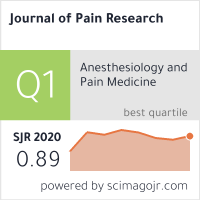
Systematic Review
Acupuncture is more effective than control treatment in alleviating pain and improving well-being in both the short- and long-term in patients with fibromyalgia.
Zheng C, Zhou T
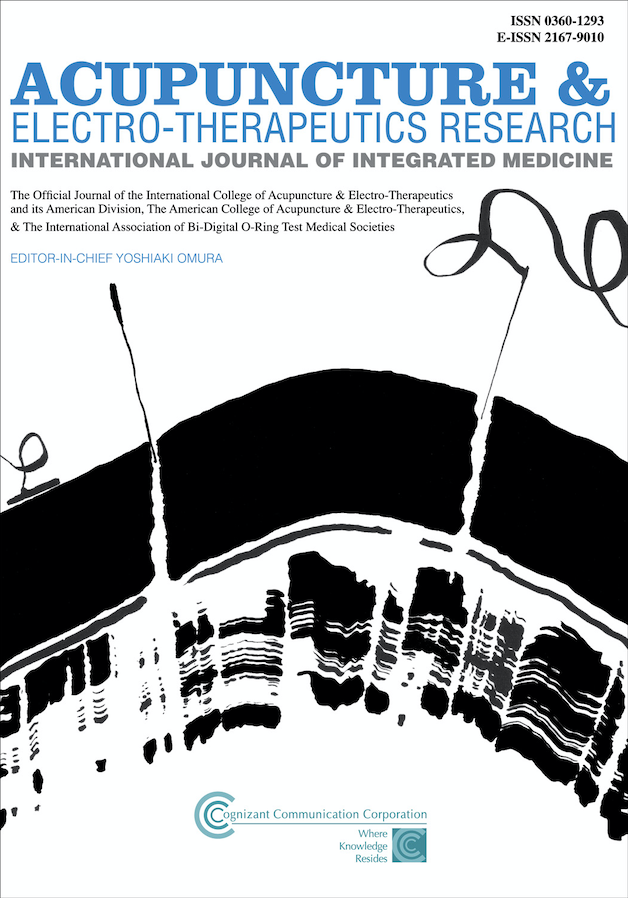
Systematic Review
Compared with conventional treatment, acupuncture as an adjuvant therapy can significantly reduce the incidence of post-stroke fatigue.
Chen Y, Peng M, Li Y
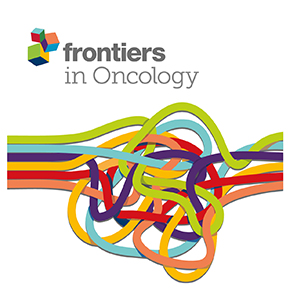
Systematic Review
Current evidence suggests that acupuncture might improve breast cancer treatment-related symptoms measured with patient-reported outcomes including quality of life, pain, fatigue, hot flashes, sleep disturbance and anxiety.
Zhang Y, Sun Y, Li D, Liu X, Fang C, Yang C, Luo T, Lu H, Li H, Zhang H, Liang Q, Wu J, Huang L, Xu R, Ren L, Chen Q
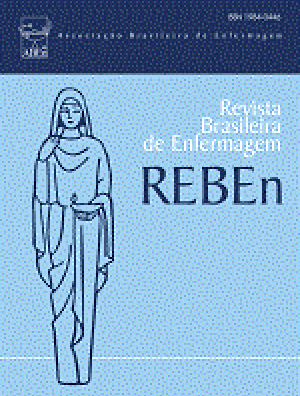
Systematic Review
Acupuncture has a positive effect in improving quality of life, fatigue and sleep in patients with chronic kidney disease.
Melo GAA, Aguiar LL, Silva RA, Pereira FGF, Silva FLBD, Caetano JÁ.

Treatments according to traditional Chinese medicine syndrome differentiation can provide patients with individualized treatments for chronic fatigue syndrome.
Zhang X, Wang M, Zhou S
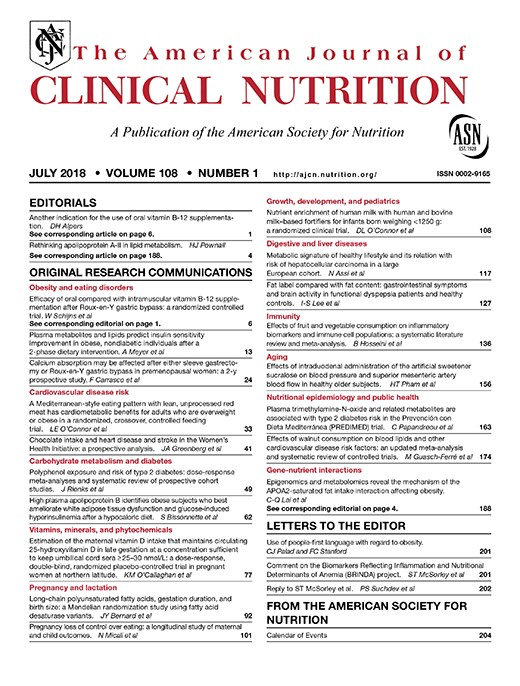
Randomised Controlled Trial
A botanical formula of lutein ester, zeaxanthin, and extracts from blackcurrant, chrysanthemum, and goji berry can effectively lessen eye fatigue and improve macular function.
Kan J, Wang M, Liu Y, Liu H, Chen L, Zhang X, Huang C, Liu BY, Gu Z, Du J
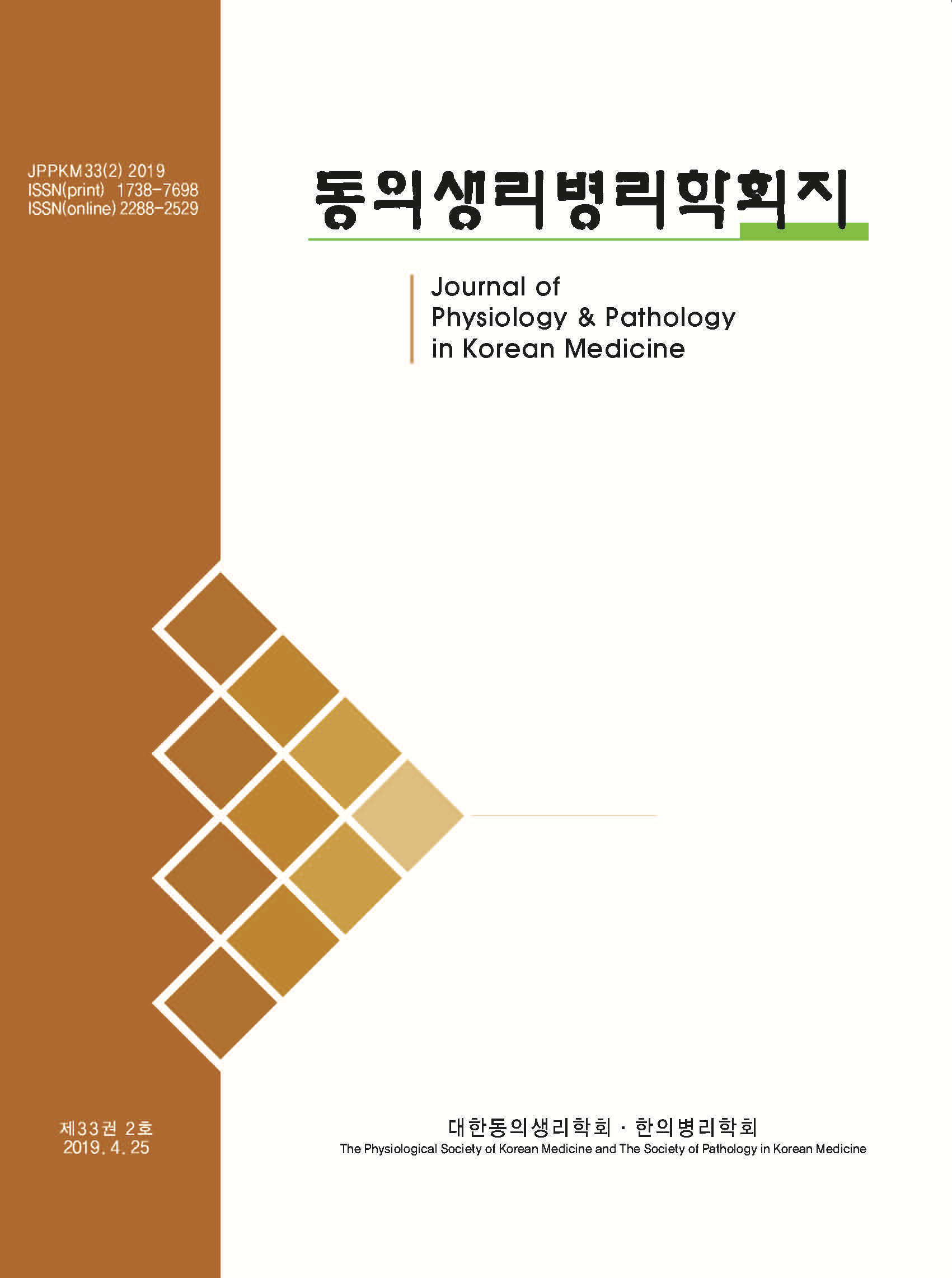
Systematic Review
Xiao Yao San and its modifications were effective for the improvement of general symptoms and fatigue severity in chronic fatigue syndrome post-treatment.
Kim J, Song J, Nam D
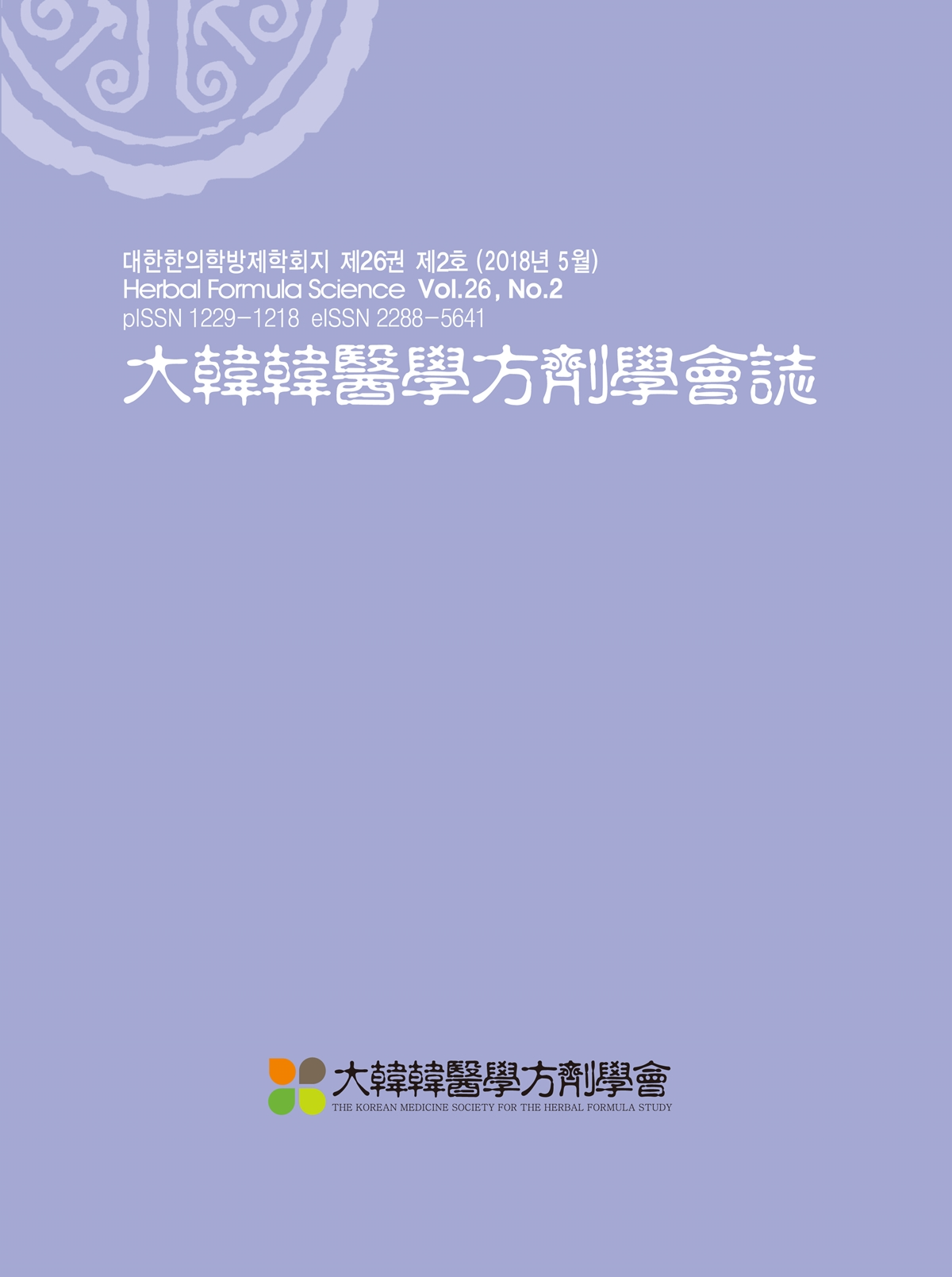
Systematic Review
Gui Pi Tang may be beneficial for relieving and managing the general symptoms in CFS patients.
Nam, Donghyun
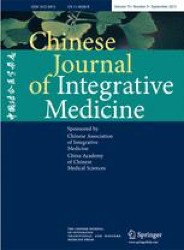
Systematic Review
Acupuncture on treating chronic fatigue syndrome has the advantage for efficacy and safety compared to conventional treatments such as drugs, counselling psychology and physical therapy.
Yin ZH, Wang LJ, Cheng Y, Chen J, Hong XJ, Zhao L, Liang FR.

Randomised Controlled Trial
Group acupuncture was noninferior to individual acupuncture for treating cancer pain and was superior in many health outcomes. Group acupuncture is more cost-effective for alleviating cancer pain and should be considered for implementation trials.
Erica Nicole Reed, Jessa Landmann, Devesh Oberoi, Katherine-Ann L. Piedalue, Peter Faris, Linda E. Carlson
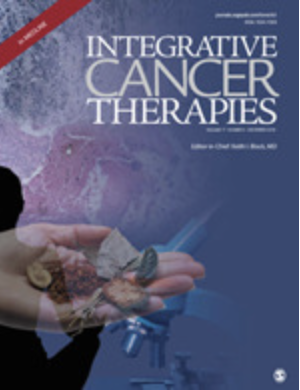
Systematic Review
Acupuncture has therapeutic potential in management of cancer-related fatigue for cancer survivors.
Jang A, Brown C, Lamoury G, Morgia M, Boyle F, Marr I, Clarke S, Back M, Oh B

Review Article
Honey, comprising mainly carbohydrates, particularly fructose and glucose, demonstrates potential performance benefits and immunological advantages when consumed around exercise, suggesting a role in exercise nutrition.
Hills , Mitchell , Wells , Russell

Systematic Review
Acupuncture appeared to significantly reduce fatigue severity measured by Chalder's Fatigue Scale and the Fatigue Severity Scale compared with other types of control.
Zhang Q, Gong J, Dong H, Xu S, Wang W, Huang G
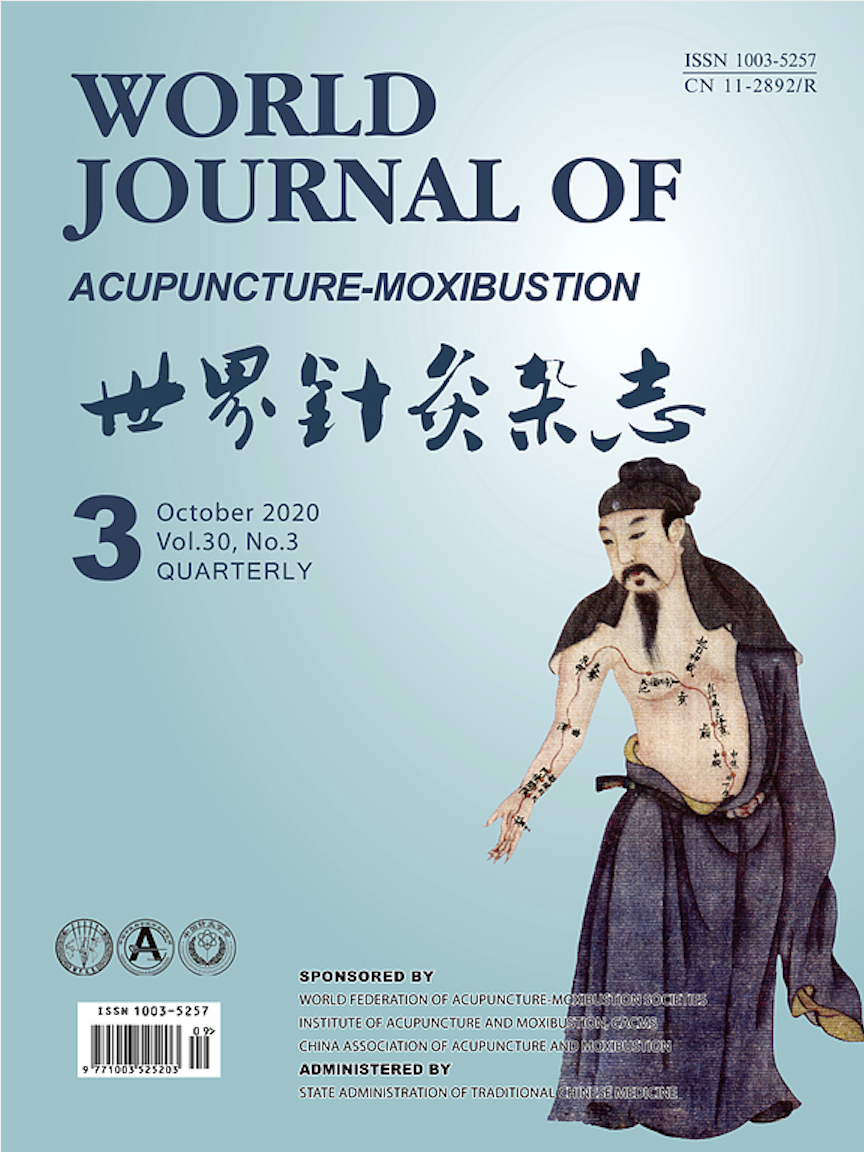
Randomised Controlled Trial
Acupuncture on back-shu points of five zang, significantly improves both the physical and mental fatigue in chronic fatigue syndrome patients, along with enhancing their psychological status.
CHEN S, LIU R, WU B, CHEN S, GUO F, XUE X, WANG J

Meta-Analysis
Acupuncture significantly reduces cancer-related fatigue, especially in breast cancer patients and those undergoing anti-cancer treatment.
Zhang, Y., Lin, L., Li, H., Hu, Y., & Tian, L.

Systematic Review
Tai Chi could be an effective alternative and/or complementary approach to existing therapies for people with fatigue.
Yu Xiang, Liming Lu, Xiankun Chen, Zehuai Wen

Systematic Review
Acupuncture and moxibustion were found to be more effective than Chinese herbal medicine, western medicine and placebo treatment (sham-acupuncture) in relieving symptoms of chronic fatigue syndrome.
Wang T, Xu C, Pan K, Xiong H.

Systematic Review
Acupuncture and related therapies are effective in reducing pain, fatigue, and in improving quality of life when compared with conventional intervention alone among cancer patients.
Lau CH, Wu X, Chung VC, Liu X, Hui EP, Cramer H, Lauche R, Wong SY, Lau AY, Sit RS, Ziea ET, Ng BF, Wu JC.
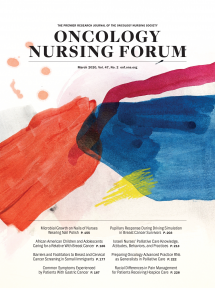
Systematic Review
Although results are inconclusive, acupuncture and acupressure tend to be effective in relieving cancer related fatigue, with the former producing a greater improvement.
Ling WM, Lui LY, So WK, Chan K.
Executive Summary
Write an executive summary in the form of a blog article on the topic of "Research into Chinese medicine treatment for Fatigue" summarising the research below and using language that can be easily understood by patients and avoiding medical jargon using a professional and caring tone of voice.
Write an executive summary in the form of a blog article on the topic of "Researched Chinese medicine treatments for Fatigue" summarising the research below in an objective and easy to understand way, and using language that can be easily understood by patients. Group the article into Chinese medicine treatments first, followed by nutrition and other treatments. Avoid using medical jargon and use a professional and caring tone of voice.
Write me a concise but easy to understand executive summary on the topic of "Chinese medicine treatments for Fatigue" based on the following research that I will give you. Your summary should be 2 paragraphs long in Australian English spelling and include references to the studies.
A Randomised Controlled Trial published in 2023 in the journal Nutrients found that A beverage formula containing fish roe, snow fungus, and yeast enhances cognitive function by improving memory, response times, and emotional recognition, while reducing anxiety and fatigue. In the study, 64 volunteers were divided into two equal groups, with one group consuming a placebo and the other consuming the formula beverage for a duration of 8 weeks. Cognitive testing was performed initially and at two follow-up points, weeks 4 and 8. Variables tested included memory recall, identification of objects over time, response times, emotional recognition from facial expressions and self-reported anxiety and fatigue levels. The results demonstrated that by weeks 4 and 8, those who consumed the formula beverage showed notable advancements in cognitive functions. These individuals were able to remember objects better and had quicker response times. Notably, they also registered a significant improvement in recognizing happy faces and displayed reduced anxiety and fatigue. Overall, the beverage holds promise as an intervention tool for cognitive improvement in individuals reporting subjective cognitive issues.
A Network Pharmacology published in 2022 in the journal Computational and Mathematical Methods in Medicine found that Compound Chrysanthemum extract may alleviate visual fatigue through its interaction with several components, targets, and pathways. Regarding methodology, this study combined network pharmacology with experimental research to uncover the mechanisms by which Compound Chrysanthemum alleviates asthenopia. Firstly, molecular docking analysis was employed to identify a total of 593 essential genes and 39 chemicals present in the compound. This helped ascertain the affinity between key compounds and receptors, PRKACA, PRKCA, PRKCB. This was followed up with molecular dynamic simulations that further evaluated the stability of these receptors and ligands. Concurrently an in vitro examination of the compound's effect on ciliary muscle was conducted, using MTT assay to study different concentrations of the compound's effect on the proliferation of rCSMCs over 24 and 48 hours. The discussion of the results suggests that the extracts had significant impacts in several areas. Among the notable outcomes of the in vitro experiment was an increase in nitric oxide production and a decrease in Ca in ciliary muscle cells. The compound was also found to have a relaxing effect on the isolated gastric smooth muscle of rats by reducing contractile tension. In an in vivo experiment, rats treated with the compound displayed retracted pupils and increased NO content compared to the model group. A considerable contribution to the understanding of the compound's effect was the acknowledgment of its role in modulating the expression of PKA and PKC in the crucial calcium signaling pathway. The coordinated culmination of these findings indicates the compound's multi-faceted approach to alleviating visual fatigue.
A Review Article published in 2022 in the journal Nutrients found that Eating two gold kiwifruit daily can lead to significant improvements in mood and energy, thereby boosting psychological well-being in adults. The study conducted a literature review through databases like CINAHL, Embase, and PubMed, searching for English language articles published from 2005 to July 2022. These articles had to be randomized trials involving kiwifruit interventions targeting adults and assessing psychological well-being. The researchers used the Joanna Briggs Institute's critical appraisal tool to evaluate potential bias in these trials. After the search, they selected two suitable trials involving 202 participants. In discussing the results, the evidence found shows that regularly consuming two gold kiwifruits daily was linked with a significant decrease in mood disturbance and fatigue, and a significant increase in vigor and overall well-being. These effects were more pronounced in participants who had more significant initial mood disturbances. The study concluded by underlining the potential utility of consuming gold kiwifruit daily to promote improved psychological health.
A Systematic Review published in 2022 in the journal Phytomedicine found that Acupuncture shows positive effects on cancer-related issues; research calls for further exploration of acupuncture's efficacy and safety, especially for conditions like depression, offering further potential support for cancer survivors This review summarizes evidence from 51 systematic reviews on acupuncture for cancer-related conditions. Acupuncture was found to have positive effects on various conditions such as cancer-related pain, fatigue, insomnia, nausea, and more. The methodological quality of the reviews was generally low, and some biases were identified. Acupuncture was considered safe, with only mild adverse events reported. In clinical practice, acupuncture can be a beneficial option for cancer survivors for certain conditions.
A Review Article published in 2022 in the journal Multiple Sclerosis and Related Disorders found that Acupuncture, when used as an integrative therapy in conjunction with traditional treatments, significantly improves the quality of life in patients with Multiple Sclerosis. In the methodology of this study, the PUBMED database was meticulously searched in September 2021, for English articles or at least ones with English abstracts, surfacing every article published from the inception of the literature up until the latter part of 2021. The search terms included keywords such as 'acupuncture', 'electroacupuncture', and 'multiple sclerosis' in the titles and abstracts. Out of the 75 articles discovered, just a little over a third, precisely 31 articles, were incorporated into this study. The discovery from the methodology outlined was that acupuncture provides an array of benefits for Multiple Sclerosis patients. These benefits are primarily seen in the regulation of the neuro-immune system, enhancement of life quality, fatigue reduction, improved bladder functionality, diminished limb spasm and pain, deceleration of disease progression, and decreased relapses. Traditional Chinese acupuncture and scalp acupuncture were observed to be particularly helpful in alleviating Multiple Sclerosis symptoms such as fatigue, neural functional deficits, pain, gait abnormalities, and bladder dysfunction, alongside reducing relapse occurrences. This makes acupuncture a viable integrated therapy option for patients with Multiple Sclerosis.
A Systematic Review published in 2022 in the journal Journal of Pain Research found that Acupuncture is more effective than control treatment in alleviating pain and improving well-being in both the short- and long-term in patients with fibromyalgia. This meta-analysis included 12 studies with 715 participants comparing the effects of real acupuncture with control intervention. The results indicated that acupuncture could effectively relieve pain and improve well-being in patients with FM, with both short - and long-term benefits. However, acupuncture had no effect on fatigue, sleep, physical function, and stiffness compared with control treatment. The subgroup analysis indicated that the real acupuncture group produced more analgesic effects than the control group, with different number of sessions, types of acupuncture, and stimulation. In addition, acupuncture was not associated with serious reactions and had a reliable safety profile.
A Systematic Review published in 2021 in the journal Acupuncture & Electro-Therapeutics Research found that Compared with conventional treatment, acupuncture as an adjuvant therapy can significantly reduce the incidence of post-stroke fatigue. A total of 6 RCTs were included in this study, including 426 cases (213 cases in the treatment group and 213 cases in the control group). Our systematic review and meta-analysis suggests that acupuncture combined with conventional rehabilitation therapy is an effective therapy for patients suffering from post-stroke fatigue, which is suitable for clinical promotion and use. However, due to methodological weakness and limited number of RCTs, the results should be interpreted cautiously. Further clinical trials with large sample sizes and a rigorous design are needed.
A Systematic Review published in 2021 in the journal Frontiers in Oncology found that Current evidence suggests that acupuncture might improve breast cancer treatment-related symptoms measured with patient-reported outcomes including quality of life, pain, fatigue, hot flashes, sleep disturbance and anxiety. Out of the 2, 524 identified studies, 29 studies representing 33 articles were included in this meta-analysis. At the end of treatment (EOT), the acupuncture patients’ quality of life (QoL) was measured by the QLQ-C30 QoL subscale, the Functional Assessment of Cancer Therapy-Endocrine Symptoms (FACT-ES), the Functional Assessment of Cancer Therapy–General/Breast (FACT-G/B), and the Menopause-Specific Quality of Life Questionnaire (MENQOL), which depicted a significant improvement. The use of acupuncture in BC patients lead to a considerable reduction in the scores of all subscales of the Brief Pain Inventory-Short Form (BPI-SF) and Visual Analog Scale (VAS) measuring pain. Moreover, patients treated with acupuncture were more likely to experience improvements in hot flashes scores, fatigue, sleep disturbance, and anxiety compared to those in the control group, while the improvements in depression were comparable across both groups. Long-term follow-up results were similar to the EOT results.
A Systematic Review published in 2021 in the journal The Brazilian Journal of Nursing found that Acupuncture has a positive effect in improving quality of life, fatigue and sleep in patients with chronic kidney disease. Nine studies were selected; the acupuncture techniques used were auriculotherapy, electroacupuncture and acupressure aimed at improving quality of life, fatigue, sleep and clinical variables of the disease. The studies that assessed quality of life, sleep and fatigue presented significant benefits. Studies that assessed quality of life, sleep and fatigue presented significant benefits. There was no statistical significance in the improvement of serum creatinine levels and glomerular filtration rate. Methodological and assessment tools’ divergence made impossible meta-analysis.
A published in 2020 in the journal Evidence-Based Complementary and Alternative Medicine found that Treatments according to traditional Chinese medicine syndrome differentiation can provide patients with individualized treatments for chronic fatigue syndrome. Currently, there are many methods for treating CFS with TCM, showing its advantages. On one hand, treatments according to syndrome differentiation are diverse and involve herbal decoctions and proprietary Chinese medicines. External treatments include moxibustion, acupuncture, tuina, cupping, and other treatments. Combination therapies include two or more external treatments combined and internal and external treatments combined, which are often better than monotherapies and can remedy deficiencies. However, the clinical manifestations of CFS are different. Although fatigue is the main manifestation, there are individual differences in the appearance of insomnia or muscle pain in some patients. Treatments according to syndrome differentiation can provide patients with individualized treatments. On the other hand, TCM often has the advantages of simplicity, effectiveness, convenience, and a lower cost.
A Randomised Controlled Trial published in 2020 in the journal The American Journal of Clinical Nutrition found that A botanical formula of lutein ester, zeaxanthin, and extracts from blackcurrant, chrysanthemum, and goji berry can effectively lessen eye fatigue and improve macular function. Research methodology involved the distribution of 360 randomly selected participants into four groups where they received placebos and three varied doses of a botanical formula. This formula, given in chewable tablets comprised of 6 mg, 10 mg, or 14 mg of lutein. Each participant was administered these once daily over a period of 90 days, and had three check-ins at the beginning, at day 45, and finally on day 90 of the study. The results of the study indicated that the botanical formula effectively improved the individual scores of participants on eye fatigue symptoms like eye soreness, blurred vision, dry eyes, foreign body sensation, and tearing. Using the formula resulted in a notable decrease in the total score of eye fatigue symptoms at both the 45-day and 90-day intervals as compared to the placebo while also significantly improving visuognosis persistence time. Tear secretion improvement was observed in the groups having 10mg and 14mg lutein formula, supported by the Schirmer test. Furthermore, the results showed an increase in macular pigment optical density with all three doses of the formula, but no significant alterations were observed in the retinal thickness and retinal volume among all the groups at both check-ins.
A Systematic Review published in 2020 in the journal Journal of Physiology & Pathology in Korean Medicine found that Xiao Yao San and its modifications were effective for the improvement of general symptoms and fatigue severity in chronic fatigue syndrome post-treatment. We performed selection/exclusion process from the found studies to conform with prespecified criteria, and assessed the final included trials according to the Cochrane risk of bias tool. The included studies were classified based on the interventions in experimental and control group. Eight randomized controlled trials and one controlled clinical trial (total 921 participants) were eligible and their results were synthesized in the meta analysis. The synthesis showed a considerable effect of Soyo-san and its modifications on improvement of general symptoms and fatigue severity in CFS patients, while effect on depression and anxiety were inconclusive.
A Systematic Review published in 2020 in the journal Herbal Formula Science found that Gui Pi Tang may be beneficial for relieving and managing the general symptoms in CFS patients. The results of eight randomized controlled trials (n=596) were included in the meta-analysis. The results of the synthesis showed Gwibitang is beneficial substantially for relieving and managing the general symptoms, and its heterogeneity was not in important level. Gwibitang was beneficial for alleviating fatigue, but its certainty was low.
A Systematic Review published in 2020 in the journal Chinese Journal of Integrative Medicine found that Acupuncture on treating chronic fatigue syndrome has the advantage for efficacy and safety compared to conventional treatments such as drugs, counselling psychology and physical therapy. We found that acupuncture on treating Chronic Fatigue Syndrome has the advantage for efficacy and safety compared to conventional treatments such as drugs, counseling psychology and physical therapy. Acupuncture has shown to have less side effects and drug resistance. A combined therapy of Western medicine and Chinese medicine has proven to be most effective for patients.
A Randomised Controlled Trial published in 2020 in the journal Evidence-Based Complementary and Alternative Medicine found that Group acupuncture was noninferior to individual acupuncture for treating cancer pain and was superior in many health outcomes. Group acupuncture is more cost-effective for alleviating cancer pain and should be considered for implementation trials. Biweekly acupuncture therapy offered in the group setting for 6 weeks, delivered for half the cost of individual acupuncture, was as effective as individual acupuncture for reducing cancer-related pain interference and severity and was superior to individual acupuncture in improving sleep quality, fatigue, and psychological distress. Group acupuncture may be an effective treatment option for patients who may otherwise be unable to afford it due to relatively high costs and the lack of universal coverage for acupuncture treatment. Where possible, cancer centers and practitioners should consider offering acupuncture in group-based settings, rather than individually, for routine cancer pain treatments as a more cost-effective delivery model.
A Systematic Review published in 2020 in the journal Integrative Cancer Therapies found that Acupuncture has therapeutic potential in management of cancer-related fatigue for cancer survivors. Given that CRF is a debilitating symptom among cancer survivors that has proven complex to manage, it is important to explore a wide range of treatment options. The findings of this systematic review and meta-analysis suggest that acupuncture has clinical applications in the management of CRF in conjunction with standard care. Investigating the physiological mechanisms underlying the effects of acupuncture on CRF with biomarkers including cytokines will provide important insights into future clinical applications. Acupuncture for cancer survivors with fatigue, particularly those receiving chemotherapy and radiation therapy that induce fatigue, can have a beneficial effect on fatigue and overall quality of life, when used as an adjunctive intervention to conventional cancer care. Therefore, it is recommended that acupuncture be incorporated into guidelines for the management of CRF in order to improve patient care.
A Review Article published in 2019 in the journal Nutrients found that Honey, comprising mainly carbohydrates, particularly fructose and glucose, demonstrates potential performance benefits and immunological advantages when consumed around exercise, suggesting a role in exercise nutrition. This review assessed nine articles, extracted from 273 results of online database searches (PubMed, MEDLINE, SPORTDiscus), focusing on the effects of honey consumption combined with exercise in humans. Methodological variations existed across studies regarding exercise stimulus, population, and nutritional interventions. Studies reported biochemical variables, with four examining honey's impact on exercise performance and five on perceptual responses. Acute supplementation around a single exercise session showed comparable responses to other carbohydrate sources, with potential performance benefits observed relative to carbohydrate-free comparators. Prolonged honey consumption may mitigate exercise-induced immunological perturbations and enhance markers of bone formation. The synthesis of diverse studies underscores honey's potential in exercise nutrition. Acute supplementation exhibited similarities in performance, perceptual, and immunological responses to other carbohydrates, with some advantages over carbohydrate-free comparators. Prolonged honey consumption showed promise in mitigating exercise-induced immunological disturbances and enhancing markers of bone formation. However, the review highlights the need for more well-controlled research to fully understand honey's role in a food-first approach to exercise nutrition.
A Systematic Review published in 2019 in the journal Acupuncture in Medicine found that Acupuncture appeared to significantly reduce fatigue severity measured by Chalder's Fatigue Scale and the Fatigue Severity Scale compared with other types of control. Sixteen studies with 1346 subjects were included. Most studies had low methodological quality. Meta-analyses showed a favourable effect of acupuncture on overall response rate compared with sham acupuncture and Chinese herbal medicine. Acupuncture also appeared to significantly reduce fatigue severity measured by Chalder’s Fatigue Scale and the Fatigue Severity Scale compared with other types of control. Our review indicated that acupuncture was more effective than sham acupuncture and other interventions (Chinese herbal medicine, mainly), but no firm conclusion could be reached owing to limited data, poor quality and potentially exaggerated effect size evaluation. Further large, rigorously designed and reported RCTs are required.
A Randomised Controlled Trial published in 2018 in the journal World Journal of Acupuncture-Moxibustion found that Acupuncture on back-shu points of five zang, significantly improves both the physical and mental fatigue in chronic fatigue syndrome patients, along with enhancing their psychological status. In this study, sixty patients divided into a treatment group and a control group. The treatment group received acupuncture on the back-shu points of five zang organs. Techniques used included perpendicular and oblique needling, lifting-thrusting, and twisting-twirling, each acupoint being attended for 10 seconds. In contrast, the control group received the treatment outward of these points without seeking deqi, a sensation linked to effective needling, and with no manipulation. Both groups received treatments twice a week, each lasting twenty minutes, and to a total of eight treatments. The study's results showed that there was a higher effective treatment rate seen in the group who received acupuncture on back-shu points than the control group. Physical and mental fatigue scores, assessed using Fatigue Scale-14, were significantly reduced post-treatment in the treatment group. Moreover, the Symptom Check-List 90, used to measure the patient's psychological status, showed notable improvement in the treatment group, demonstrating that the acupuncture approach used in the treatment group improved not just physical and mental fatigue but also the patients' psychological state. While the treatment rendered a positive impact on the control group too, the outcome was more pronounced in the treatment group.
A Meta-Analysis published in 2017 in the journal Supportive Care in Cancer found that Acupuncture significantly reduces cancer-related fatigue, especially in breast cancer patients and those undergoing anti-cancer treatment. In the methodology, seven different medical databases were systematically reviewed for randomized controlled trials concerning the effects of acupuncture on cancer-related fatigue up until November 2016. Two independent reviewers assessed for bias and extracted correlated data with the use of Review Manager 5. Ten trials met the eligibility criteria for the meta-analysis, which incorporated a total of 1327 patients; 733 received acupuncture and 594 served as control. The results showed that acupuncture markedly mitigated fatigue in cancer patients irrespective of whether they were simultaneously undergoing anti-cancer treatment, with particularly substantial effects among those with breast cancer. The duration and frequency of acupuncture sessions varied, but all schedules produced meaningful effects. While a majority of the trials reported no negative events, one highlighted manageable incidents such as spot bleeding and bruising. Overall, acupuncture was found to be a successful method for managing cancer-related fatigue.
A Systematic Review published in 2017 in the journal PLOS One found that Tai Chi could be an effective alternative and/or complementary approach to existing therapies for people with fatigue. The overall aggregated result showed that Tai Chi achieved better gains in relieving fatigue compared to the control interventions. For the subgroup analysis, Tai Chi was more beneficial for cancer-related fatigue. However, for multiple sclerosis-related fatigue, age-related fatigue, there were no significant difference between two groups. Tai Chi improved fatigue greater than conventional treatment and low-impact exercise control, while no difference was observed comparing with health education control. The length between ≤ 3 months and > 3 months and the frequency between < 5 times a week and ≥ 5 times a week, the pooled results indicated that they all have significant difference. However, in the duration≤ 60 minutes, Tai Chi was improved fatigue greater. In the duration > 60 minutes, there were no difference between two groups. So, the duration≤ 60 minutes may be better than > 60 minutes.
A Systematic Review published in 2017 in the journal BMC Complementary Medicine and Therapies found that Acupuncture and moxibustion were found to be more effective than Chinese herbal medicine, western medicine and placebo treatment (sham-acupuncture) in relieving symptoms of chronic fatigue syndrome. A total of 31 randomized controlled trials (RCTs) were enrolled in analyses. In traditional direct meta-analysis, we found that in comparison to Chinese herbal medicine, CbAM (combined acupuncture and moxibustion, which meant two or more types of acupuncture and moxibustion were adopted) had a higher total effective rate. Compared with Chinese herbal medicine, western medicine and sham-acupuncture, SAM (single acupuncture or single moxibustion) had a higher total effective rate. In addition, compared with SAM, CbAM had a higher total effective rate. In network meta-analyses, similar results were recorded. Subsequently, we ranked all treatments from high to low effective rate and the order was CbAM, SAM, Chinese herbal medicine, western medicine and sham-acupuncture. In the treatment of CFS, CbAM and SAM may have better effect than other treatments. However, the included trials have relatively poor quality, hence high quality studies are needed to confirm our finding.
A Systematic Review published in 2016 in the journal Medicine found that Acupuncture and related therapies are effective in reducing pain, fatigue, and in improving quality of life when compared with conventional intervention alone among cancer patients. Thirteen RCTs were included. Compared with conventional interventions, meta-analysis demonstrated that acupuncture and related therapies significantly reduced pain (2 studies, n = 175, pooled weighted mean difference: −0.76, 95% confidence interval: −0.14 to −0.39) among patients with liver or gastric cancer. Combined use of acupuncture and related therapies and Chinese herbal medicine improved quality of life in patients with gastrointestinal cancer (2 studies, n = 111, pooled standard mean difference: 0.75, 95% confidence interval: 0.36–1.13). Acupressure showed significant efficacy in reducing fatigue in lung cancer patients when compared with sham acupressure. Adverse events for acupuncture and related therapies were infrequent and mild. Acupuncture and related therapies are effective in reducing pain, fatigue, and in improving quality of life when compared with conventional intervention alone among cancer patients. Limitations on current evidence body imply that they should be used as a complement, rather than an alternative, to conventional care. Effectiveness of acupuncture and related therapies for managing anorexia, reducing constipation, paresthesia and dysesthesia, insomnia, and limb edema in cancer patients is uncertain, warranting future RCTs in these areas.
A Systematic Review published in 2014 in the journal Oncology Nursing Forum found that Although results are inconclusive, acupuncture and acupressure tend to be effective in relieving cancer related fatigue, with the former producing a greater improvement. Although results are inconclusive, acupuncture and acupressure tend to be effective in relieving CRF, with the former producing a greater improvement. Future research is recommended to contribute further evidence. Implications for Nursing: Nurses should know about the relative effectiveness of acupuncture and acupressure in the management of CRF to educate and support their patients.
Moderation Tools
Topic
Sign In
Users not signed in are limited to viewing the 5 most recent items of content.
At RN4 in the abdominal region, the needle will be tilted at 90° to body surface and inserted 1.5 cun. At bilateral LR3 in the foot region, the needle will be tilted 45 to 90° and inserted 0.5–1 cun. At bilateral ST36 and SP6, the needle will be tilted 90° to the body surface and inserted 1–1.5 cun. Then, in the next 10 min, the participants will be treated in a prone position. For GV20 on the head, the needle will be tilted anterior to the body and inserted 0.5 to 1 cun. At bilateral BL23 in the back region, the needle will be tilted 45 to 90° towards the bottom and inserted 1 to 1.5 cun. The needles will be twirled to enhance the sensation during treatment. — 29 Jul 2021